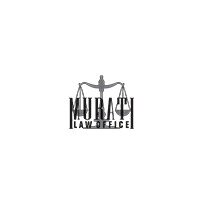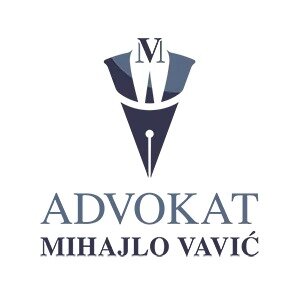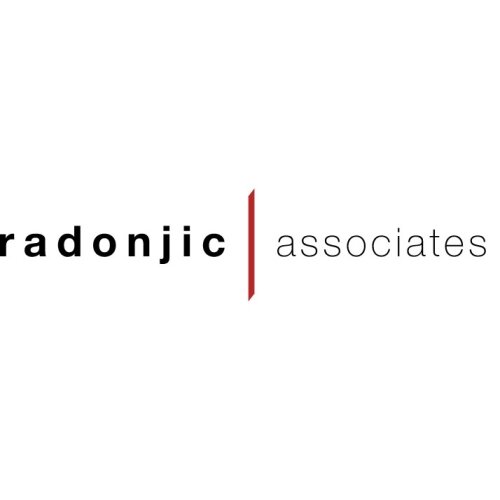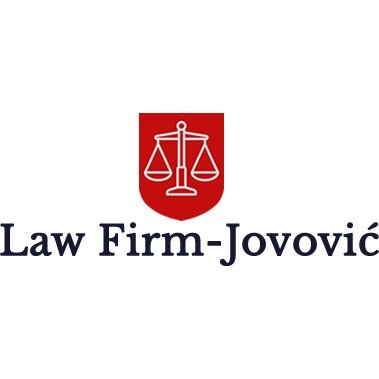Best Water Law Lawyers in Montenegro
Share your needs with us, get contacted by law firms.
Free. Takes 2 min.
Or refine your search by selecting a city:
List of the best lawyers in Montenegro
About Water Law in Montenegro
Water Law in Montenegro is a specialized area of law that regulates the use, management, and protection of water resources within the country. This includes rivers, lakes, groundwater, and other bodies of water. Given Montenegro’s rich natural resources and emphasis on sustainable development, water law plays a critical role in environmental protection, urban planning, agriculture, hydropower production, and public health. The legal framework is built to balance the needs of individuals, communities, businesses, and the state while safeguarding water as a public resource.
Why You May Need a Lawyer
There are several situations where individuals, businesses, or organizations might require the assistance of a legal professional specializing in Water Law in Montenegro:
- Disputes over water usage rights between neighbors, businesses, or communities
- Seeking permits or licenses for the use of surface or groundwater for commercial, agricultural, or industrial purposes
- Issues related to the construction of infrastructure such as wells, dams, or pipelines
- Challenges to government decisions regarding water allocation or protection
- Environmental concerns, including water pollution, protection of ecosystems, and legal liability for contamination
- Compensation claims for damage caused by flooding or water management failures
- Negotiations involving international watercourses or cross-border water management
- Complying with complex regulatory requirements surrounding water quality and waste discharge
Having a lawyer versed in Montenegrin Water Law can help you navigate these issues, ensuring your interests are protected and all actions comply with legal requirements.
Local Laws Overview
The foundational legislation governing water resources in Montenegro is the Law on Waters. This law establishes comprehensive rules on water resource management, usage rights, water protection measures, emergency management, and the obligations of public authorities, private entities, and individuals. Some key aspects include:
- Public Ownership - Most waters in Montenegro are considered public property, and their use is subject to permits granted by the state.
- Licensing and Permits - Activities using or impacting water resources often require administrative approval or permits, including extraction, discharge, and construction near bodies of water.
- Environmental Protection - There are strict regulations aimed at protecting water quality, preventing pollution, and preserving natural habitats.
- Water Use Priorities - The law prioritizes certain uses, such as drinking water supply and ecosystem needs, over industrial or agricultural activities when water is scarce.
- Dispute Resolution - There are clear procedures for resolving disputes related to water usage, contamination, and compensation for water-related damages.
- Oversight and Enforcement - Regulatory agencies monitor compliance, issue fines, and can stop unlawful practices related to water usage and protection.
Staying aware of the specific rules and obligations relevant to your activities involving water is crucial. Legal advice can help ensure compliance and avoid costly penalties.
Frequently Asked Questions
What are considered public waters in Montenegro?
Public waters include rivers, streams, lakes, and most underground waters, owned by the state or local municipalities for communal use and managed in the public interest.
Do I need a permit to use water from a river or well on my property?
In most cases, yes. Commercial, agricultural, or significant personal use of water resources typically requires a permit issued by the competent authority.
What should I do if I discover illegal dumping or pollution in a local waterway?
You should report the incident to the nearest environmental inspector or the municipal authority responsible for water management. Legal action can be taken against polluters, and you may request legal assistance if you are affected.
How are water usage conflicts between neighbors resolved?
Such disputes are subject to administrative or judicial proceedings, often requiring an assessment by local or regional water authorities, and may ultimately be resolved in court if parties cannot agree.
Does Water Law in Montenegro apply to groundwater as well?
Yes, groundwater is regulated under the Law on Waters, which covers usage, protection, and licensing requirements.
Are there restrictions on building near lakes and rivers?
Yes, construction near water bodies is strictly regulated. Setback regulations, environmental impact assessments, and water management permits often apply.
What penalties exist for violating Water Law regulations?
Penalties may include administrative fines, orders to cease unlawful activities, remediation obligations, and potential criminal liability in cases of severe violations.
Can private entities own water resources in Montenegro?
Water resources themselves remain public property, but private entities may have usage rights through leases, concessions, or permits, subject to state oversight.
Who is responsible for maintaining local water infrastructure?
Responsibility typically falls to municipal authorities or special water management bodies, but users may be obligated to maintain certain installations, such as private wells or drainage systems.
How can I challenge a government decision about water allocation or permits?
You have the right to appeal administrative decisions to higher authorities and, if dissatisfied, to seek judicial review in the courts with the assistance of a qualified lawyer.
Additional Resources
For those seeking more information or official guidance on Water Law in Montenegro, the following resources may be helpful:
- Ministry of Agriculture, Forestry and Water Management - Responsible for implementing and enforcing water policy.
- Environmental Protection Agency - Oversees water quality, pollution monitoring, and environmental enforcement.
- Municipal Water Authorities - Manage local water infrastructure, usage permits, and complaints.
- Legal Bar Association of Montenegro - Provides directories of qualified lawyers specializing in environmental and water law.
- Non-governmental environmental organizations - Offer advocacy, education, and support for water protection initiatives.
Next Steps
If you find yourself facing an issue or question related to Water Law in Montenegro, consider these steps:
- Gather all relevant documents, permits, or correspondence related to your water usage or issue
- Contact your municipal authority or regulatory agency for information about your rights and obligations
- Consult a specialist lawyer familiar with Montenegrin Water Law to assess your situation and advise on your legal options
- Consider mediation or negotiation for resolving disputes before resorting to legal proceedings
- Stay informed about changes in Water Law regulations and local policies that may affect your interests
Professional legal advice can help ensure you comply with the law, protect your rights, and resolve disputes efficiently. Acting promptly and with the right information can prevent complications and protect both your interests and the environment.
Lawzana helps you find the best lawyers and law firms in Montenegro through a curated and pre-screened list of qualified legal professionals. Our platform offers rankings and detailed profiles of attorneys and law firms, allowing you to compare based on practice areas, including Water Law, experience, and client feedback.
Each profile includes a description of the firm's areas of practice, client reviews, team members and partners, year of establishment, spoken languages, office locations, contact information, social media presence, and any published articles or resources. Most firms on our platform speak English and are experienced in both local and international legal matters.
Get a quote from top-rated law firms in Montenegro — quickly, securely, and without unnecessary hassle.
Disclaimer:
The information provided on this page is for general informational purposes only and does not constitute legal advice. While we strive to ensure the accuracy and relevance of the content, legal information may change over time, and interpretations of the law can vary. You should always consult with a qualified legal professional for advice specific to your situation.
We disclaim all liability for actions taken or not taken based on the content of this page. If you believe any information is incorrect or outdated, please contact us, and we will review and update it where appropriate.
Browse water law law firms by city in Montenegro
Refine your search by selecting a city.















